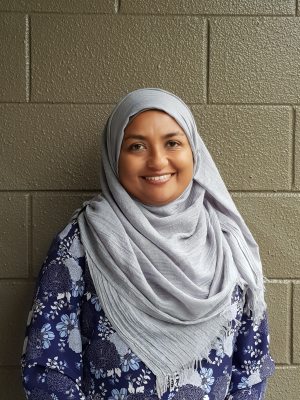Scaffolding Writing for Multilingual Learners
Writing is an incredibly difficult and messy process. Even accomplished writers can find it daunting. When you are writing in a language you are not fully confident using, the challenge is even greater. For our multilingual learners (MLs), for whom English is an additional language, writing can often be a struggle. This is particularly the case when there is too much emphasis on the final product of writing at the end. To support developing writers effectively, we need to focus more on the process of writing, and to provide supportive feedback.
Stages of Writing
The writing task is typically seen to occur in a four-stage process:
-
- Prewriting: gathering information, organizing ideas, identifying audience and purpose, selecting a genre
- Drafting: getting ideas down in writing, reflecting on the general conventions of writing
- Revising: reviewing drafts for clarity of message, word choice, and organization
- Editing: checking written work for conventions of writing, voice, tone, and style
Learners need scaffolding at each of these stages. For example, if they are writing a simple information report about an event, the writing lesson may include some of these activities:
-
- Prewriting: building/reviewing key vocabulary, watching a video of the event, using a graphic organiser to gather information while viewing
- Drafting: Use writing frames to create initial draft
- Revising: Peer review and feedback
- Editing: Edit using a self-assessment checklist
Shift to Process
Providing choice and inviting frequent reflection help writers pay attention to where they are in their learning and what they need in order to write better. Learners can be given choice in terms of their topic or genre. They could be involved in negotiating due dates for submission. You could also assign several writing tasks from which students choose any three to complete in a set period of time. Giving some freedom of choice allows learners to exercise some autonomy and feel more responsible for their learning.
Now, let’s consider the feedback you provide on the writing. Imagine that you are a student who has worked hard on writing a multiple-page essay. Your teacher has just handed back your marked essay. Which of the following scenarios would you find most helpful?
-
- You have been awarded a grade or mark but there is no additional feedback
- There are suggested changes annotated on your work, and some feedback on strengths and weaknesses
- Your essay is covered in lines, question marks, and critical comments identifying errors. There doesn’t seem to be anything good about your writing.
Neither Scenario A nor C are helpful because they don’t provide the student with constructive feedback. As a learner, you are unlikely to be excited about working more on your writing if you don’t receive helpful comments about what works and what needs to be done to make it better. The feedback in Scenarios A and C are unhelpful because they focus on the final product over the process.
To give learners more agency over their writing, we can encourage them to set individual writing goals and monitor their own progress and growth. Teachers and peers can provide feedback at every stage of the writing process, so that learners are supported throughout the writing journey. This shift to the process changes the focus from mastery and evaluation of writing to growth as a writer. It helps to create a safe environment in which to make mistakes.
Supporting Multilingual Writers
Consider the following strategies to support your MLs with their writing.
-
- Before assigning writing, consider any potential cultural assumptions embedded in the task. For example, MLs may become confused with idiomatic phrases or references to some aspects of societal or popular culture if they are new to the context.
- Set clear guidelines and discuss your expectations from the outset. Where possible, provide annotated models of effective writing specific to genre. Learners can use these to unpack the structure and language patterns that are associated with the type of writing.
- Encourage MLs to discuss and outline an initial plan of their writing. This is a critical stage in which feedback can be helpful in developing ideas and nudging learners in the right direction. Feedback at this stage should be focused on content (and possibly structure).
- Create opportunities for feedback from multiple sources, including peers.
- Embed some element of reflection into the task. To encourage learners to reflect on their growth as a writer, you could invite them to reflect on the process and how they dealt with challenges.
- When giving feedback, focus on one to two aspects of language, based on the students’ developmental level. For example, if you focus on the learner’s use of tense and ignore other grammatical errors, it could provide more concrete guidance and direction for improvement.
- If challenges arise based on the language variety used by the ML, responding to it through a framework of difference rather than correctness may be useful. For example, rather than saying, “You can’t say __________,” consider saying “This is unusual in this context. A more common way to say this would be __________.”
Teacher Reflection for Improved Writing Activities
Think of the kinds of writing activities you normally assign in your teaching context. For each one, ask yourself:
-
- How would this activity help my students develop their writing skills?
- Would my students find the activity stimulating, motivating, and interesting to do?
- Is it at an appropriate level for them?
- What kind of support would I need to provide for this activity?
- Do I like this activity?

